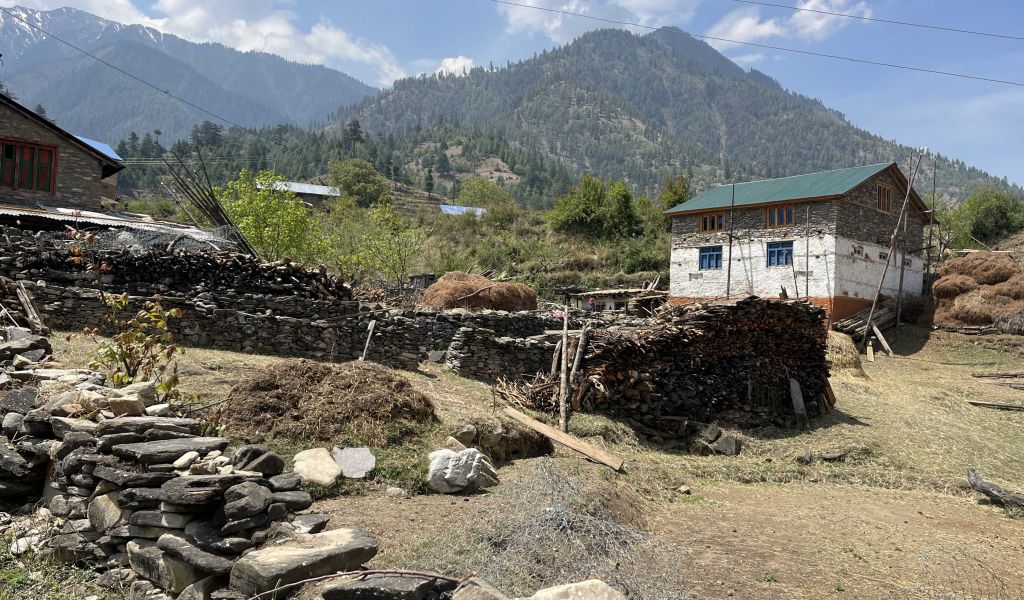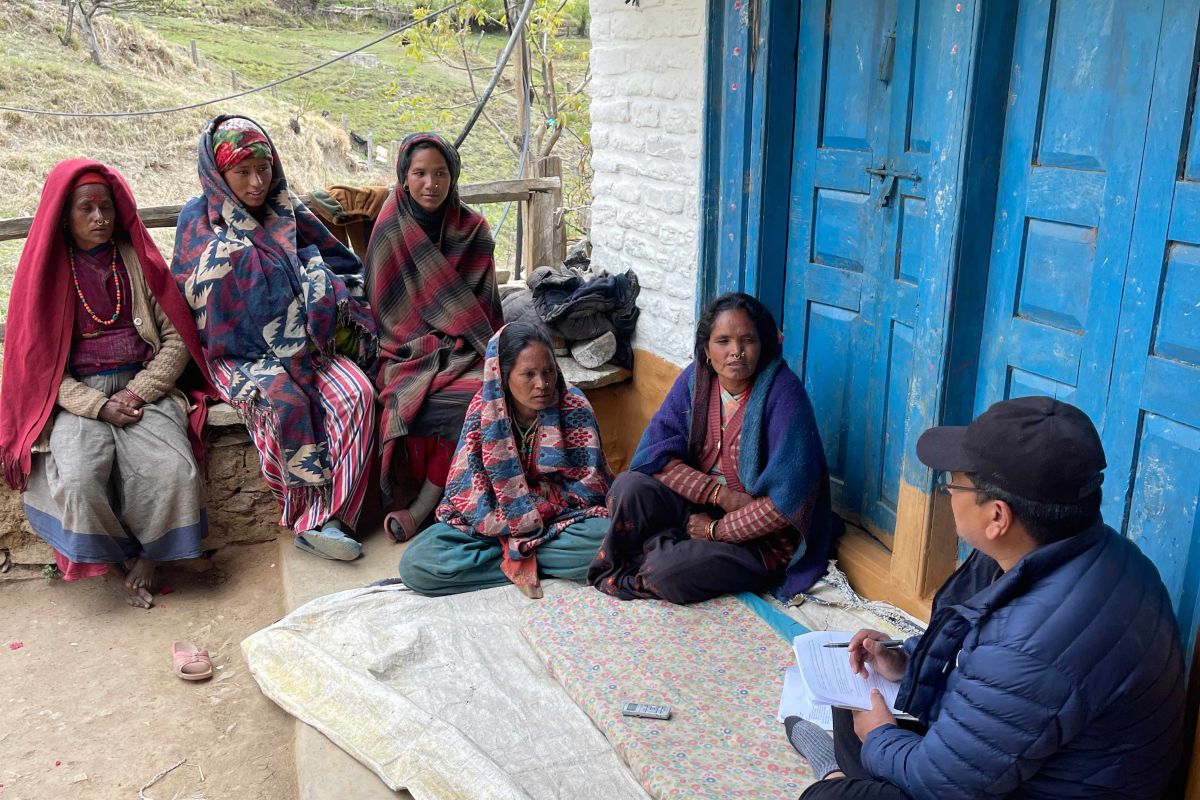New project will bring sustainable energy and livelihood options to Nepal’s rural communities

A project to strengthen livelihoods by transforming energy systems in local communities and community forest users’ groups is underway in Nepal’s Himalayan district of Jumla.
The WISIONS Innovation Lab is an initiative of Germany’s Wuppertal Institute for Climate, Environment and Energy. The lab focuses on increasing accessibility to decentralized energy solutions such as micro-hydropower, solar photovoltaic and biomass energy. It also supports sustainable landscape practices, including agriculture, community forestry and sustainable watershed management. Collaborating partners for the Innovation Lab in Nepal are Winrock International Nepal, People, Energy & Environment Development Association (PEEDA), Energy Action Partners (ENACT) and RECOFTC Nepal.
A challenging landscape
Jumla is a district with elevations ranging from 915 metres to 4,679 metres. Its mountainous topography makes electric grid expansion difficult in the short to medium term. Many villages in Jumla are not connected to the country’s national grid.
“People in the area completely depend on firewood for cooking and heating.” – Pradeep Budhathoky
Budhathoky adds that in Nepal high dependency on forest products including improper firewood collection contributes to forest degradation that eventually causes landslides, flood damage and loss of lives and assets for communities. Increasing accessibility to alternative energy sources can reduce household dependence on firewood and allow households to benefit sustainably from forests.
“Hydropower has been recognized as a sustainable source of energy with negligible environmental impacts,” Budhathoky said. “Micro-hydropower has an important role for Nepal's future energy as the rugged topography of the country does not support national grid connection in the mountains.”
An inclusive path is vital for success
The project takes a multi-stakeholder approach which includes academics, researchers, private-sector suppliers of technology and services, and local people. The idea is to leverage the expertise and knowledge of stakeholders to
- Identify development opportunities and strategies to overcome challenges rural communities face
- Assess which renewable energy and landscape management solutions can effectively unleash these opportunities
- Design, implement and evaluate transformative actions that unlock the full potential of the most promising energy and landscape solutions
Field work began in May to identify opportunities and strategies to overcome challenges for communities and their associated community forest users’ groups in Jumla. Project team members from Winrock, PEEDA and RECOFTC visited three micro-hydropower stations in two of Jumla’s rural municipalities. The Girikhola station is located in Tatopani Rural Municipality, and Naumule and Dochalgad stations are in Guthichaur Rural Municipality.

During the field visits, project team members conducted household surveys, focus group discussions and key informant interviews with micro-hydropower operators and local representatives from women’s groups, informal savings groups, farmers groups and community forest users’ groups. The goal was to gather information on energy use, the socioeconomic status of households and potential interventions.
The fieldwork showed that improvements in the electro-mechanical infrastructure are necessary to ensure quality energy supply from micro-hydro power. Halting forest degradation and introducing proper nature-based solutions will reduce landslides and river flooding.
Sustainable options create opportunities for young people
Budhathoky said the project is important because it will provide new development opportunities for building resilience of different local communities and their associated community forest users’ groups.
“The few and negligible sustainable livelihood opportunities in rural areas is driving migration of young men and women to urban centers and countries overseas.” – Pradeep Budhathoky
“We predict that the widespread use of decentralized renewable energy and sustainable landscape management in rural communities will generate employment opportunities in small- and micro-enterprises both on and off farms. It will increase food security from diversified agricultural activities. And it will enhance resilience to climate change in natural ecosystems, particularly of the Himalayan forests and people.”
Establishing solid relationships and understanding
The WISIONS Innovation Lab project runs in four phases.
During the first phase, team members build alliances with local change agents and reach a mutual understanding of the development opportunities for the participating communities and municipalities. Watch this video to learn more about our intervention during the first phase.
In the second phase, team members and local stakeholders co-design action plans for deploying the development opportunities by applying sustainable energy and landscape management solutions. This will be done through a series of workshops and capacity-building programs that respond to the specific development potentials and capacity needs of the participating communities.
Phases one and two run from January 2023 to December 2023. Phases three and four are the implementation phases of the project, which will begin in 2024.
Watch this video to learn more about the approach behind WISIONS Innovation Lab.
For more information contact nepal@recoftc.org.
###
RECOFTC’s work is made possible with the support of the Swiss Agency for Development and Cooperation and the Swedish International Development Cooperation Agency.

